At the Arthur Garvey Speaker of the Year final last November, Victoria Park Club 15 was awarded the (R) Alan Crook Award for Club of Excellence in the Perth metro area.
The awards are presented annually to those clubs which can demonstrate in their written submissions to the judging panel of Freemen that they deserve to win.
What did Club 15 do to achieve ‘Club of Excellence’ status? A review of their submissions revealed a number of features in common which contributed to the clubs’ success, and which may encourage other clubs to emulate.
- Strong leadership: an active club executive comprising both experienced and new club members so that skills can be passed on and new members can be involved in running the club from the beginning.
- A clear plan for the year: planning ahead for activities within and outside the club, including setting membership targets and how to achieve them. A commitment to participate in the Club of Excellence awards – clubs which do almost always benefit from the experience. The importance of planning to overall club success cannot be overstated, “If you fail to plan, then plan to fail.”
- Strong membership: actively working to attract new members, and to convert visitors into members. A strong membership is important for club longevity.
“The reason most people never reach their goals is that they don’t define them, or ever seriously consider them as believable or achievable. Winners can tell you where they are going, what they plan to do along the way, and who will be sharing the adventure with them.” Denis Waitley (1933–) American speaker and writer
- Member education and training: supporting the PDP and IDP training formats for members new to public speaking, supplemented by interesting and varied meeting agendas to keep members engaged and to present a good impression to visitors. Clubs that have a number of accredited and experienced critics in-house who provide informative feedback to speakers. Members from both clubs who apply their Rostrum training in their workplace, including tutorials to business customers, Anzac Day addresses, presentations to local government councillors, chambers of commerce and conference groups.
- Competition speaking: providing opportunities for members to extend themselves by presenting competition speeches. Clubs that hold in-house Speaker of the Year competitions, and members from clubs who participated in the Arthur Garvey Speaker of the Year.
- Involvement in Dais: clubs who have members serving on the Board of WA Rostrum, and at least one member from each club attended the Dais Reps meetings throughout the year. Club critics who participate in Training Council meetings and workshops.
- Fellowship: providing opportunities to meet members from other clubs and to socialise outside Rostrum meetings.
So, the answer? Having clear goals and a plan to achieve them plus members who are committed to the club and to Rostrum, and who have a willingness to participate and encourage others to do so too.

